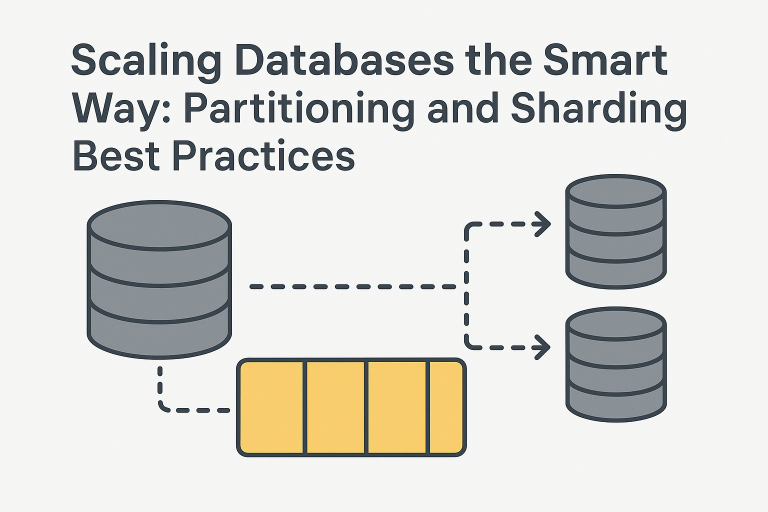
Managed IT services are crucial for businesses to ensure the smooth operation of modern companies and their technology infrastructure. However, managing and maintaining an efficient IT infrastructure can be challenging and resource intensive. This is where outsourced IT support services come into the picture. By partnering with a specialized external provider, businesses can access a range of advantages that can save them valuable time, money, and resources. In this blog post, we will explore the importance of IT services, the benefits of outsourced IT support, and how it leads to significant time, money, and resource savings.
Types of IT Support Services and How They Help Businesses
IT support services have become indispensable in the modern business landscape. In fact, they offer a plethora of IT support services that help businesses overcome challenges and maximize their technology investments. To illustrate this, let’s learn about the key services that managed IT services can provide you.
- Help Desk Support:
Help desk support is a key IT service offering businesses a single point of contact for all technical issues and inquiries. Help desk technicians are trained to resolve IT issues like software glitches, hardware malfunctions, network connectivity problems, and user support. By providing timely assistance, help desk support helps employees quickly resolve technical issues, reducing downtime and boosting productivity. - Network Support:
Network support services focus on the management and maintenance of the network infrastructure of businesses irrespective of their size. This includes tasks such as setting up and configuring network devices, monitoring network performance, troubleshooting connectivity issues, and implementing security measures. Network support professionals ensure the network operates smoothly, enabling efficient communication and data transfer across the organization. - Server Support:
Servers play a critical role in storing and managing data, hosting applications, and facilitating collaboration within a business. Server support services involve installing, configuring, monitoring, and maintaining server systems. This includes tasks such as server setup, software updates, data backups, and performance optimization. By ensuring the stability and reliability of servers, businesses can enhance data security, improve application performance, and minimize disruptions. - Cloud Computing Support:
Cloud computing has become indispensable to modern businesses due to its flexibility, scalability, and cost-effectiveness. Cloud computing support services assist companies in adopting and managing cloud-based solutions. This includes tasks such as cloud migration, infrastructure setup, data backup and recovery, and ongoing monitoring and optimization. Cloud support professionals help businesses leverage the benefits of cloud technology, such as reduced hardware costs, increased data accessibility, and improved collaboration. - Cybersecurity Support:
Cybersecurity support services are essential in today’s digital landscape, where businesses face a constant threat of cyber-attacks and data breaches. Specifically, these services involve implementing robust security measures to protect networks, systems, and sensitive data. Moreover, cybersecurity support professionals conduct risk assessments, develop security protocols, deploy firewalls and antivirus software, perform regular security audits, and provide employee training on best practices. By proactively addressing security vulnerabilities, businesses can not only mitigate the risk of cyber threats but also safeguard their valuable assets. - Data Backup and Recovery:
Data loss can severely affect businesses, resulting in financial losses, reputational damage, and operational disruptions. Therefore, data backup and recovery services ensure that sensitive and critical data is regularly backed up and can be easily retrieved in the event of data loss or system failures. Specifically, this includes setting up backup systems, establishing backup schedules, testing data recovery processes, and monitoring backups for integrity. Ultimately, data backup and recovery services provide businesses with peace of mind, knowing their data is secure and recoverable in case of unforeseen incidents.
The Importance of IT Support Services
Outsourcing IT services offer several advantages leading to time, money, and resource Saving:
- Expertise and Knowledge:
Outsourced IT support services bring a wealth of expertise and knowledge to the table. Their professionals stay updated with the latest technologies, industry best practices, and emerging trends. By leveraging their specialized skills, businesses can avoid the need for extensive training or hiring additional staff, saving both time and money. - Cost Savings:
One of the significant advantages of outsourcing IT support services is the potential for cost savings. By partnering with an external provider, businesses can eliminate the need for investing in expensive IT infrastructure, hardware, and software licenses. Additionally, they can avoid the expenses associated with hiring and training an in-house IT team. Outsourced IT support services often operate on a subscription or pay-as-you-go model, allowing businesses to have better control over their IT spending. - Scalability and Flexibility:
As businesses grow and evolve, their IT needs change. Outsourced IT support services offer scalability and flexibility to meet these changing requirements. Whether expanding the network infrastructure, adding or removing users, or upgrading hardware and software, an external provider can quickly and efficiently accommodate these changes. This scalability ensures that businesses have the right IT resources at the right time, eliminating the need for unnecessary investments or disruptions. - Proactive Monitoring and Maintenance:
Outsourced IT support providers employ proactive monitoring and maintenance practices to identify and address potential issues before they impact the business. They continuously monitor networks, systems, and applications, ensuring optimal performance, uptime, and security. By detecting and resolving problems in real time, businesses can minimize downtime, avoid costly repairs, and maintain smooth operations. - Enhanced Cybersecurity:
Cybersecurity threats are one of the key concerns for every organization. Outsourced IT support services specialize in implementing robust security measures to protect sensitive business data as well as systems. They employ advanced security protocols, conduct regular vulnerability assessments, and provide proactive threat detection and prevention. By outsourcing IT security, businesses can reduce the risk of cyber attacks, data breaches, and associated financial and reputational damages.
Conclusion:
Outsourcing IT support services can indeed be a game-changer for businesses, allowing them to save valuable time, money, and resources. Furthermore, the importance of IT services in the digital landscape cannot be overstated, as outsourcing provides a cost-effective solution to meet these needs. By leveraging the expertise of external providers, businesses can focus on their core operations, achieve scalability, and enhance cybersecurity. By outsourcing IT support services, companies streamline operations and gain a competitive edge in the fast-changing digital landscape.






